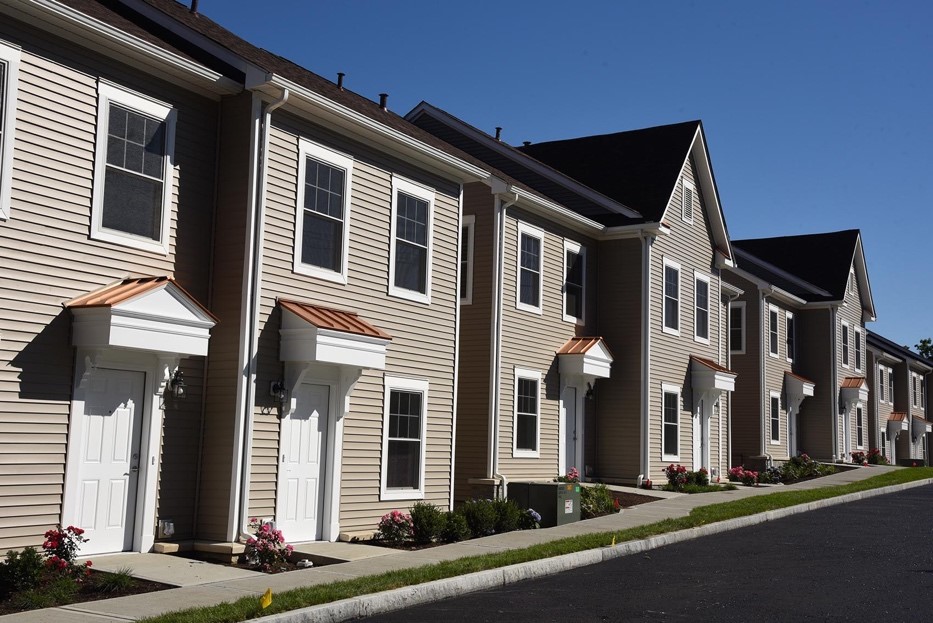A ribbon-cutting ceremony was recently held for the completion of phase one of rejuvenated affordable housing complex Armstrong Court in Greenwich.

There are 18 new-construction townhouses contained in six buildings representing the first phase of the redevelopment project. Those consist of six two-bedroom units and 12 three-bedroom units, with 1½ bathrooms in each. The units were built on previous underdeveloped land and with energy efficiency features.
The first 18 units will serve as replacement housing to ease the relocation and rehabilitation logistics of the second phase. The second phase will include the gut rehabilitation of Buildings 1, 3, and 6 and is expected to begin in late summer. Each construction phase is slated to take 12 months.
Residents will be shifted within the complex while the units are gutted and rebuilt. After each phase of construction is complete, residents are moved into the newly refurbished units. The next phases of the redevelopment project will combine the current one-bedroom and two-bedroom units to produce more three-bedroom, two-bathroom units, which are in higher demand for families.
The existing buildings at Armstrong Court were originally constructed in 1951 as a 144-unit family development contained in six buildings. With the addition of 18 new units in the first phase and rehabilitation of the buildings, the total redevelopment will result in 150 units, an increase of 6 units.
In March, Armstrong Court”™s third phase received $1,088,723 in tax credits from the Connecticut Housing Finance Authority (CHFA). That phase includes the rehabilitation of 42 units, 11 of which will be for households with 25% Area Median Income (AMI), and 31 of which will be for households with 50% to 60% AMI.
Among those in attendance at the June 13 ceremony were current and former Greenwich First Selectmen Fred Camillo and Peter Tesei, along with a number of other local and state officials.
“It is expensive to live here, so affordable housing is crucial to our community, but it also critical that we get it done right,” Camillo said.
“This particular community has endured through 70 years, and while it had served a valuable purpose, the current accommodations certainly were not what they should be for any community,” Tesei said, “so today really begins a renewal that is transformative. It speaks well to the housing authority, its board of commissioners, and the support from the state of Connecticut.”
The state Department of Housing Commissioner Seila Mosquera-Bruno noted that the department invested $3.4 million in the homes.
In the first three phases, CHFA is investing more than $16 million in tax-exempt bonds. “Our partners at DOH are also making a significant investment (of $12.2 million) along with Enterprise, the tax credit syndicator, who purchased the Low Income Housing Tax Credits (of $18.1 million in federal 4% and 9% LIHTCs),” said CHFA CEO Nandini Natarajan. “In addition, there are other private investors, and Eversource, that purchased state tax credits and provided energy rebates.”
















